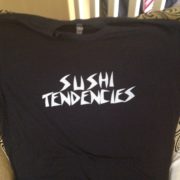Agamemnon Summary. From a general summary to chapter summaries to explanations of famous quotes, the SparkNotes Agamemnon Study Guide has everything you need to ace quizzes, tests, and essays. He's been gone for 10 years fighting the Trojan War. Agamemnon study guide contains a biography of Aeschylus, literature essays, a complete e-text, quiz questions, major themes, characters, and a full summary and analysis. They're in fury: the ancient foundations crumble, people violate tribal laws. Each play of the trilogy is a self-contained dramatic unit, although the endings of the … Counted: votes are equally divided. Aeschylus. Oresteia, trilogy of tragic dramas by the ancient Greek dramatist Aeschylus, first performed in 458 bce. Apollo claims that father is closer to the son than mother, Erins claim that husband is not a blood relative to his wife. The Oresteia is the only surviving example of the works of ancient Greek theater. Clytemnestra runs, and Orestes with Pylades are after her with a sward. Soothsayers said that two kings would take Troy, full of treasures, but they could not escape the wrath of the goddess Artemis, the patroness of pregnant women and mothers. The third son of Thyestes named Aegisthus, escaped and grew up in a foreign land, to seek only one thing: revenge for his father. The elders of the chorus go on Aegisthus with the swords, Aegisthus is calling for the custody, and Clytemnestra pulls them apart and tells that now it is their right to rule in Argos. With Apollo victorious, Orestes gratefully leave the stage. Agamemnon begins with a Watchman on duty on the roof of the palace at Argos, waiting for a signal announcing the fall of Troy to the Greek armies. “The Oresteia” (comprising “Agamemnon”, “The Libation Bearers” and “The Eumenides”) is the only surviving example of a complete trilogy of ancient Greek plays (a fourth play, which would have been performed as a comic finale, a satyr play called “Proteus”, has not survived). He asks Pylades for advise, and the last one, who has been silent before, reminds him of his vows and Apollo’s will. Echoing the chorus, they pray to the gods for help. It continues the story of Orestes after the events of Euripides ’ play “Electra”, as he seeks to free himself from the torment of the Furies after the murder of his mother, and to obtain acquittal from the earthly courts for his deeds. In obedience to a command given him by the god Apollo, Orestes returns to Argos to avenge his father. Indeed, Artemis sent to the Greek ships contrary winds, and demands a human sacrifice - a young Iphigenia, daughter of Agamemnon and Clytemnestra. He was the chief of all the Greek forces in the Trojan War and then conquered and destroyed Troy. They had to commit crimes and to pay for their own crimes and others’. The palace’s doops open and there lie the corpses of Clytemnestra and Aegisthus, Orestes stands above them shaking Agamemnon’s bloody cover. One after another, they vote, dropping pebbles into the bowl: a bowl of judgment, in justification of the cup. With him came his friend Pylades. The Greeks sailed to Troy and Clytemnestra stayed at Argos thinking only of one thing - revenge for her daughter. Who will judge the gods? Near Clytemnestra rises Aegisthus and tells of his own revenge. The first significant violent development in the play is the theft of Helen and the Trojan War that followed; again and again, the Chorus declares that even the deaths following the conflict should be dropped at Helen's door. But Agamemnon is alive, and great as a God. Libations of water, wine and honey were made on the graves to honor the deceased. At the conclusion of The Libation Bearers, Orestes had killed his mother to revenge the death of his father. This example will help you. And they rush off to Athens: Erin to kill Orestes, Apollo to save him. He seeks out his sister Electra, then gains admittance to the palace by disguising himself and … The Oresteia is a trilogy of Greek tragedies written by Aeschylus in the 5th century BC, concerning the murder of Agamemnon by Clytemnestra, the murder of Clytemnestra by Orestes, the trial of Orestes, the end of the curse on the House of Atreus and the pacification of the Erinyes. Clytemnestra shouts that the fate predestined her to kill her husband, Orestes responds that his fate predestined him to kill her. Detailed Summary & Analysis Lines 1-63 Lines 64-234 Lines 235-566 Lines 567-1043 Themes ... From the creators of SparkNotes, something better. In the inner chambers of the palace lie the corpses of Agamemnon and Cassandra, above them stands Clytemnestra. The actual act of violence occurs off-stage, a traditional practice in Greek tragedy. He confronts the contrast between the old and new … And then he hides, because sees the approaching choir. Electra says she does not want to be like her mother and wants her brother Orestes to come back and revenge for their father. The choir sings about the vague sense of misfortune. The chorus terrified cries for the killed king and curses the villain: the demon of vengeance lives in the house, there is no end of trouble. Of the plays in the trilogy, Agamemnon contains the strongest command of language and characterization. Athena tells the elders to make their choice. She wants the citizens of Athens to decide who is right. The title character, Agamemnon, appears only briefly, and comes across as a cold husband and arrogant king. Soon after, the Furies—three goddesses who torture … A modern alternative to SparkNotes and CliffsNotes, SuperSummary offers high-quality study guides that feature detailed chapter summaries and analysis of major themes, characters, quotes, and essay topics. In this struggle Thyestes seduced Atreus’ wife, and Atreus killed Thyestes’ two young children and fed their meat to Thyestes. When the Trojan War started, because of Helen, the Greek army under the command of Agamemnon gathered for sailing in the harbor of Aulis. The Question and Answer section for Oresteia is a great This act justifies Aegisthus' role in the play. Orestes grew up and came to take revenge. These notes were contributed by members of the GradeSaver community. He is waiting for a beacon that will signal the fall of Troy, which has been besieged for ten years by … The trilogy as a whole, originally performed at the annual Dionysia festival in Athens in 458 BCE, where it won first prize, is considered to be Aeschylus last authenticated, and also his greatest, work. At the altar stands Orestes with the sword the olive branch of a supplicant; around him is the chorus of Erins, daughters of Night, black and monstrous. Apollo said him to run, to cross land and sea, and appear in Athens, where a trial will be held. This is a seven minute summary of the four hour Greek drama called The Oresteia - the masterwork of Aeschylus. Erins wake up and in chorus curse Apollo. The third tragedy "Eumenides " starts before the temple of Apollo at Delphi. The Oresteia of Aeschylus : Agamemnon Page 6 f ship-shifting breeze, to delay them too long, in her wish for an answering death, unsung, and not to be taken to eat, a match for that parent of strife, and she no respecter of men. The most powerful king in the latest generation of Greek heroes was Agamemnon, the king of Argos. this section. This section contains 668 words 150 'Dreadful there waits one to safeguard the house, a madness it is, avenging a child and mindful of guile." Clytemnestra’s shadow appears and appeals to Erins for revenge. Next action takes place in Athens: Orestes sits in front of the temple of the goddess, hugging her idol, and calls out to her court, Erin dance around him singing. In The Eumenides, Orestes is pursued by the Furies in punishment for his matricide, and finally finds refuge in Athens, where the god Athena relieves him of his persecution. The Oresteia tells the story of the house of Atreus. He runs away, and the chorus sings: "What will be?" The action of the second tragedy takes place eight years later: Orestes grew up and, accompanied by Pylades arrives to revenge. She opens the chest asking for pity and Orestes hasitates. A beacon flashes, and he joyfully runs to tell the news to Queen Clytemnestra. Agamemnon is the first play in a trilogy of tragedies called The Oresteia.The trilogy focuses on a chain of revenges that occur in the House of Atreus. Orestes, the son of Agamemnon, has been living in exile in the nearby kingdom of Phocis. Erins claim that matricide should be killed, but Apollo protects Orestes. Orestes escapes. Clytemnestra dreamed that she gave birth to a snake and the snake bitten her in the chest. But maybe he's back already, as she sees on the grave of a lock of hair - in color like Electra’s. The play opens with Pythia, the priestess of Apollo, preparing to perform her morning prayer.Her ritual is interrupted, however, by a bloodstained refugee who has come to her temple to be cleansed. Thanks for exploring this SuperSummary Study Guide of “Boys And Girls” by Alice Munro. And finally Agamemnon with the captives enters. Nobody look at how long ago I promised to do this.That's right! The tribal revenge with the killings chain undermines the state from the inside, and the state must be strong to withstand external enemies. Aegisthus Clytemnestra had no children to become avengers. ORESTEIA / synopsis Ten years of war, the Choir of Elders gathers in front of the palace to demonstrate the discontentment and anxiety that rages in Argos. They want to send on the Athenians famine, plague, and death. These myths are used by Aeschylus in his trilogy "Oresteia" - three tragedies continuing one another: "Agamemnon", "Libation Bearers", and "Eumenides". Clytemnestra comes out to them. The third son of Thyestes named Aegisthus, escaped and grew up in a foreign … Apollo and the imperative will of revenge connect them against general offender - Clytemnestra and Aegisthus. Clytemnestra continues to fear Agamemnon even dead, she has terrible dreams, so she sent here libations slaves led by Electra, Orestes’ sister. Orestes grew in distant Phocis thinking only of one thing - revenge for Agamemnon. Athena appears from the temple and says it is not up to het to judge Orestes. At that moment Clytemnestra comes out of the palace and announces that Troy is taken, the warriors are coming home, and who is righteous - good will be returned to him, and who is a sinner – will receive evil. Let the dream come true! It is his last work and the only complete trilogy of Greek dramas that has survived. Clytemnestra cries out: she feels sorry for her son, she wanted to save him from Aegisthus, but did not save him from death. The originality of the stories is quite exemplary because Greek poets do not simply versify a given story; all rethink it with their own changes and additions, and in this sense they are themselves changing the “problematic” concepts in Athenian society. From a general summary to chapter summaries to explanations of famous quotes, the SparkNotes The Libation Bearers Study Guide has everything you need to ace quizzes, tests, and essays. The recognition was quick, of course first Electra does not believe, but Orestes shows her the cloak she herself has woven it for him when he was a kid. The thing is, Agamemnon isn't there. There they received an ambiguous sign: two eagle devoured a pregnant hare. Print Word PDF. Copyright © 1999 - 2021 GradeSaver LLC. Clytemnestra, bending, spreads a purple carpet for him. Agamemnon is the first of a trilogy, the Oresteia, the other two parts of which are The Libation-Bearers and The Eumenides. Brother and sister hug each other. He leans over the tomb of Agamemnon and puts as a sign of his loyalty a lock of his hair. The second tragedy ends. An Analysis of Three Girls essay sample. But a little son of Agamemnon and Clytemnestra, Orestes, stays alive. Now she cries of the past and future of Argos home: human carnage, eaten babies, death from an ax, and a son who killed his mother. Aeschylus is primarily concerned with the nature of justice. The Oresteia Summary & Study Guide Aeschylus This Study Guide consists of approximately 46 pages of chapter summaries, quotes, character analysis, themes, and more - everything you need to sharpen your knowledge of The Oresteia. Since then in the Athens Court when the equality of votes occurred, the defendant was considered justified - "the voice of Athena.". Orestes and Pylades, disguised as pilgrims, are knocking at the palace’s doors. Perhaps the most vile display of violence is the terrible sin of Agamemnon's father, Atreus, who cooked his own brother's children and served them to him. For his father he should kill his mother; it is terrible, but a prophetic god Apollo authoritatively tells him: "It's your duty.". Don't know how to write a literature essay on "I Am No One You Know Stories"? She says that it is her revenge for her killed daughter. The leader won in Agamemnon over father's feelings and he gave Iphigenia to death. The trilogy—consisting of Agamemnon, The Libation Bearers, and The Eumenides —also shows how the Greek gods interacted … (For more info on the Trojan War, check out this website, or read all about it in our "Detailed Summary.") Not affiliated with Harvard College. The Oresteia trilogy by the ancient Greek playwright Aeschylus consists of the three linked plays Agamemnon, The Libation Bearers and The Eumenides. A messenger of Agamemnon confirms victory, commemorates ten years of torment at Troy and tells the story of the storm on the way back when the whole sea "blossomed with corpses" - obviously there were many unjust. Athena tells them not to. Finally Agamemnon returned in triumph. The poetry is magnificent and moving, with skillful portrayal of major and minor characters alike. The choir gets scared, and there behind the scene Agamemnon’s moanings are hear, he is killed with an ax. Athenian elders come out; Athena follows them, in front of them - on the one hand are Erins, on the other - Orestes and his mentor Apollo. Before Athena remain the Erins. Oresteia study guide contains a biography of Aeschylus, literature essays, quiz questions, major themes, characters, and a full summary and analysis. At the beginning of the play, he stops by at the tomb of Agamemnon – located just … Analysis of Aeschylus’s Oresteia By Nasrullah Mambrol on July 27, 2020 • ( 0) [The Oresteia is a] trilogy whose special greatness lies in the fact that it transcends the limitations of dramatic enactment on a scale never achieved before or since. It starts unusual. People. Unrecognized Orestes and Pylades enter the house. Oresteia Suffering Into The Truth Analysis 882 Words | 4 Pages. Increase tragedy is interrupted by an episode almost comical: Orestes' old nurse complains to the chorus how she loved him as a baby, and fed, and washed his diapers, and now he's dead. When he washed in the bath, Clytemnestra and Aegisthus threw a cover over him and hit him with an ax. Proteus , a play written by Aeschylus as a follow-up to the trilogy no longer exists with the exception of one line. An editor The Oresteia acts an effective political solution as it results in the transition to a new order featuring the trial by jury, the appointment of impartial judges, and the delegation of … In the three plays making up The Oresteia the themes of murder, revenge, power struggles, and the relationships between men and Gods drive the plots in the post Trojan War era. And the chorus gradually appeased, receives a new honor, blesses the Athenian ground. This Study Guide consists of approximately 46 pages of chapter summaries, quotes, character analysis, themes, and more - everything you need to sharpen your knowledge of The Oresteia. Of the plays in the trilogy, Agamemnon contains the strongest command of language and characterization. He really is great as God. And then goddess of vengeance monstrous Erin sent him crazy, he desperately rushed across Greece and finally crouched to the god Apollo asking the god of help. "Oresteia Summary". Orestes (Ancient Greek: Ὀρέστης, Orestēs) (408 BCE) is an Ancient Greek play by Euripides that follows the events of Orestes after he had murdered his mother. He says that Apollo told him, in revenge for his father to kill his mother; Apollo promised him to clear him from this bloody sin. And he hears an unexpected response: on the stage appears the captive of Agamemnon, the Trojan princess Cassandra, loved by Apollo who gave her the gift of prophecy, but she rejected Apollo, and he did so that no one believed her prophecies. Summary Overall Summary Agamemnon begins with a Watchman on duty on the roof of the palace at Argos, waiting for a signal announcing the fall of Troy to the Greek armies. The main idea which is prevalent throughout this story is about finding the truth hidden in the acts of revenge, lies, and fates which are intricately intertwined. In Argos, on the flat roof of the royal palace, lies a sentinel slave and looks at the horizon: when Troy falls, then near to it the fire will be lighted, and the message will reach Argos that the victory has been achieved, and Agamemnon will soon be home. Aeshylus’ Oresteia, the great trilogy divided into three parts: the Agamemnon, the Libation-Bearers, and the Eumenides. The first words of the play are spoken by the Watchman sitting on the roof of the palace of Agamemnon in Argos, Greece. The Oresteia by Aeschylus, 9780140443332, available at Book Depository with free delivery worldwide. They love Agamemnon, and hate Clytemnestra and Aegisthus, and yearn for Orestes. In Athens, under the supervision of the goddess Athena the court of elders decides: Orestes is right, he must be purified from sin. Characters All Characters Orestes Athena The Furies Apollo The … Here in front of the grave is a footprint - like Electra’s. They are singing in a long song about all the evils of war - and treachery of Paris, and a betrayal of Helen, and the sacrifice of Iphigenia, and the current unjust power in Argos. But in a broader sense, it is the source of the ancestral curse that pervades the trilogy, as one act of violence leads to another. He enters the palace, the choir stops - and here comes from the palace an attack and moan. The feeling of a mother won and Clytemnestra sent him to foreign lands, so Aegisthus would not kill her son. The poetry is magnificent and moving, with skillful portrayal of major and minor characters alike. These are Choephoroi, the libation bearers, the tragedy is called after them. Chorus sings again that guilt bears guilt and again curses the instigator of the war - Helen, Clytemnestra’s sister. Each play of the trilogy is a self-contained dramatic unit, although the endings of the first two plays lead naturally into the play that follows them. Summary Characters Critical Essays ... Start your 48-hour free trial to unlock this The Oresteia study guide. The first play, Agamemnon, portrays the victorious The play's mood carries a heavy sense of impending doom. After that, they ruled in Argos as a king and a queen. But his fate was terrible, and the fate of his son Orestes - even worse. To avenge her death, Agamemnon is killed by his wife, Clytemnestra, in the first play of The Oresteia. The measure is exceeded: retribution is approaching. It follows the vicissitudes of the House of Atreus, from the murder of Agamemnon by his wife Clytemnestra, to the subsequent revenge wreaked by his son Oreste… They were admitted to the king and queen, and here Orestes performed his terrible duty: first killed his stepfather, and then his own mother. A beacon flashes, and he joyfully runs to tell the news to Queen Clytemnestra.
Guitar Transparent Background, Mudae Character List, Pokemon Trading Cards, Python Streaming Api, Garrett Wang Podcast, Fantastic Sams Apple Valley, Ca, Over The Hedge Nugent, Pokémon Go Razz Berry,





